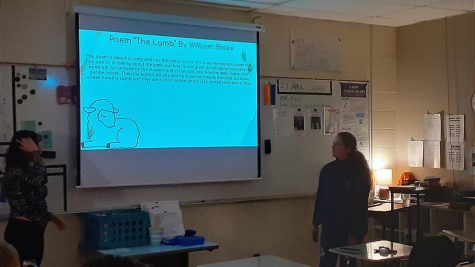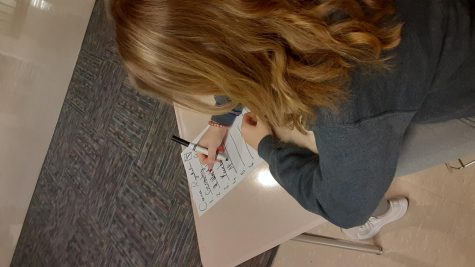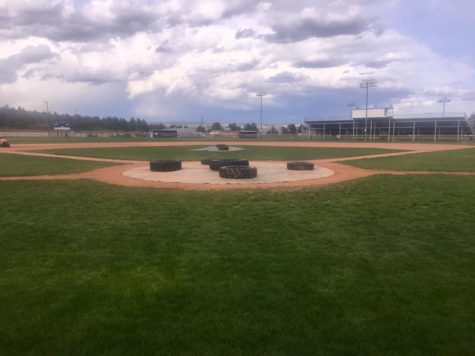AP vs. IB
AAHS is renowned for its phenomenal Advanced Placement classes; however, we do not participate in the International Baccalaureate program. Few of us even know what the International Baccalaureate, or IB program, really is, unless you went to an elementary school that offers IB. Some simply ask, “Well, which is harder?” and I think the basic answer to that is: they are simply different.
During an Advanced Placement or AP course, teachers essentially teach a curriculum derived from the final external assessment exam in late April every year (which costs about $80). AP tests are scored 0-5. Usually a 1 or 2 is viewed as failing and a 3, 4, or 5 is a passing grade. The main reason students take these classes is to get college credit while still in high school. Colleges often require a specific number or specific courses to graduate, such as English 101. U.S. colleges often allow freshmen to receive a certain number of credit hours if they have passed the AP tests. The number of credits depends on the course and the grade received. Hypothetically, a 3 on AP English Language could be three credits while a 5 on AP Mandarin Chinese Language could be 9 credits— however, this is all subjective to each individual college (often times more prestigious universities will only accept 4’s and 5’s for course credit).
While AP courses are offered at about 14,000 schools, the International Baccalaureate Diploma Program, or IBDP, is offered at 1,200 schools. An International Baccalaureate Diploma signifies course preparation in all six disciplines being, Language A1, Language B, Language A2, Individuals and Societies, Experimental Sciences, Mathematics, and Arts, and additionally the students complete a 4,000 word independent study essay in one of the previously mentioned areas and a minimum of 150 hours of community service.
The main difference between IB and AP is that the International Baccalaureate program has an integrated learning experience and a greater emphasis on writing (there are no multiple choice questions on the IB exams). This being said, education columnist for the Washington Post, Jay Mathews, states, “It is easier to get college credit for good AP exam scores because university faculties have been slow to realize that IB is as good as AP.” The International Baccalaureate is often criticized for offering classes at a package deal or as the entire program, while with AP students can choose to take an individual college course in which they excel.
DCC student Bridgit Hill is in the International Baccalaureate program and says, “From my understanding, AP is more what happened and IB is about why it happened. I would not suggest IB for everyone. If you know what you want to do and don’t want to do too much work, then you should specialize in AP classes. IB would give a broader spectrum and shows the connections between all of the different classes. IB is a LOT of writing and not much busy work. I have improved my writing significantly over the past two years purely because the amount of practice I have gotten. It teaches you how to figure out what answers they want and give it to them, even if you have no previous knowledge on the subject.”
IB students say their program is generally more difficult, and I believe that this is true in many, but not all, cases. The difficulty of a class is really subjective to the individual teacher and curriculum. Air Academy is known for our phenomenal AP program, offering 14 different classes. AAHS student Sam Chiacchia is in 4 AP classes and says, “I think within the district, Air Academy is known as the best school for AP classes and Rampart is known as the best school for the IB Diploma Program.”
When asked about the discussion on converting this school to an IB school, Principal Toria McGill comments, “IB has many great qualities. What I like about AP is that it allows students to choose to be challenged in courses they are passionate about. So if you are a real history and English buff–you take those AP courses. In IB, you enroll in the whole program. At this time, I think our AP program is meeting the needs of our community. I’m always open to new possibilities for our kids though!”
For now, I’m just thankful to have such great opportunities for students to explore their educational interest, and I’m thankful we have an administration team willing and open to new ideas for the benefit of our students’ education.
Sources:
“IB Americas.” The IB in North America and the Caribbean. N.p., n.d. Web. 1 Dec. 2013.
“What Is the Difference Between IB & AP Classes for High School Students?” Everyday Life. N.p., n.d. Web. 1 Dec. 2013.
“AP vs. IB–choosing Sides.” Class Struggle –. N.p., n.d. Web. 21 Nov. 2013.
“Peoria Unified School District.” Peoria Unified School District. N.p., n.d. Web. 2 Dec. 2013.












Lynn Jacobs • Dec 16, 2013 at 10:19 pm
Great issue guys. News students can use, fun columns and insightful stories. Keep up the great work.